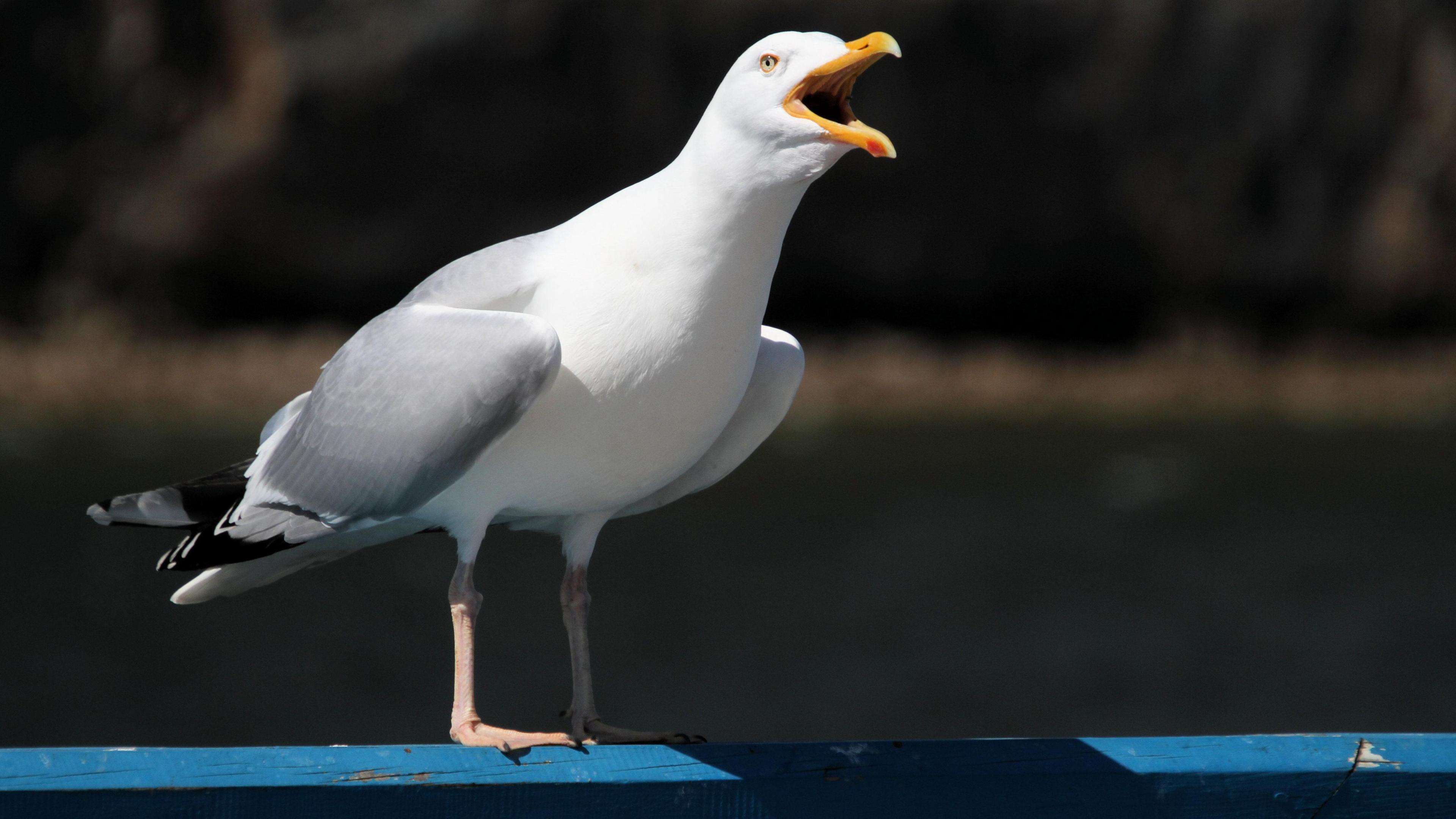Summit to look at problems posed by urban gulls

Gulls can be seen as a pest in towns and cities, but have been declining in numbers in the wild
- Published
The impact of urban gulls on Scottish communities is to be discussed at summit in Inverness next week.
The Scottish government said the event would hear views from community councils, businesses, pest controllers, councillors and scientific advisers.
Earlier this year, Highland Council set out a plan on how it would deal with gulls in Inverness following complaints about the birds' droppings and dive bombing.
Scottish Borders Council was told last year that gulls in Eyemouth were "out of control" and there had been incidents where children had been attacked.
Eyemouth could be consulted about problem gulls
- Published18 August
How the people of Nairn cope with hungry urban gulls
- Published26 June
Agriculture Minister Jim Fairlie will chair Tuesday's event in Inverness.
He said it would bring together Highland Council, public health bodies, housing associations, waste management organisations and community groups along with Scotland's nature body NatureScot.
Fairlie said: "Gulls in their natural habitat are in decline, at the same time as their populations are growing in urban settings.
"I've listened to those with concerns about the behaviour of gulls in their areas and it's clear we must increase our efforts to prevent the negative impacts being felt across many Scottish towns and cities.
"That's why I've brought together a group of people, with both expert and real-world experience to share best practice, learn from each other, identify policy gaps and agree a collective way forward."
'Natural role'
The government minister added: "Working together, I know we can make our urban areas less appealing to gulls and limit their opportunities to nest at the same time as appreciating the key role they play in nature."
Douglas Ross, Conservative MSP for the Highlands and Islands, claimed the summit would not address everyone's concerns.
He said: "I'm already getting a number of complaints from the public, from community councillors, from local councillors in Highland Council and Moray Council that they've not been invited."
Jim Fairlie said he would be "more than happy" to discuss issues around gulls with MSPs in parliament.
Gulls, like all wild birds, have long been protected by law.
But last February, NatureScot, made the rules around controlling gulls stricter, external.
Gulls, along with other sea birds, have been falling in numbers.
RSPB says the UK's gull population has declined by more than 60% since 1970, with overfishing and climate change among the suspected causes.
Bird flu has also claimed thousands of sea birds, including gulls.
Measures local authorities can use to control urban gulls when they become a problem include removing old nesting material.
Also using bird scaring devices such as spikes and reflective material to discourage gulls from nesting on roofs.
A trained bird of prey patrolled the skies above Inverness earlier this year as part of efforts to scare away gulls from parts of the city.
Inverness Business Improvement District (Bid) arranged for Angel, a four-year-old gyrfalcon, to fly over the city centre for about three times a week between March and April.
![In numbers:. Difference between sea bird census figures for 1998-2002 and 2015-2021
[ 44% Decline in herring gulls ],[ 63% Fall in great black-back gulls ] [ 75% Decline in black-headed gulls ], Source: Source: Highland Council, Image:](https://ichef.bbci.co.uk/news/920/idt2/idt2/28c11efd-a358-47a4-b1ad-da88fbfddcd9/image/460)